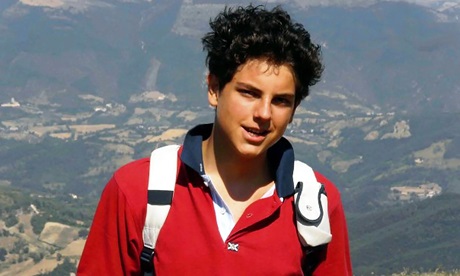Certainly, the biographical elements that fueled the media success of “God’s influencer” are compelling: a teenager in sneakers and jeans, passionate about video games, who created websites on Eucharistic miracles.
But by focusing too much on these anecdotal aspects, are we not missing the spiritual depth of his testimony?
The core of Carlo Acutis’ message is not inherently juvenile: it is his radical love for the Eucharist, which he called the “highway to heaven.”
His practice of attending daily Mass as a transformative encounter with Christ, his ability to blend contemplation with action, prayer with engagement in the digital world—all this speaks to every baptised person, regardless of age or era.
A saint’s unique characteristic is their ability to speak to all people at all times.
A projection by adults
The church’s tendency to promote “Peter Pan saints”—idealised youthful figures who died before facing the complexities of adulthood—is not new.
Before Carlo Acutis, there were Sts Dominic Savio and Maria Goretti. These figures reveal an ecclesial fascination with an eternal, fantasised youth.
This promotion of devotion to Blessed Carlo comes more from adults (parents, youth ministers, priests) than from young people themselves.
While it claims to resonate with today’s young Christians, what is often highlighted is the fantasy of a perfect youth: a well-behaved teenager without rebellion or crises.
Ultimately, Carlo becomes less the patron saint of teenagers and more the patron of what adults wish their teenagers would be.
An inhibiting idealisation
Such idealization can have a discouraging effect on young Catholics.
How can they not feel overwhelmed by these models of early perfection?
The “freshness” and “spontaneity” of adolescent faith are valuable but cannot be the sole spiritual horizon offered to youth.
Christian maturity also involves navigating deserts, persevering over time, and deepening faith through trials. Models of holiness for young people must allow them to envision spiritual growth that extends into adulthood, strengthening their resolve to mature and fulfil their faith.
By emphasizing mimicry—“someone like you”—we risk neglecting the truly inspirational dimension of sainthood. Saints should reveal what we aspire to be, not merely reflect what we already are.
Moreover, by confining Acutis to the role of “saint for the young,” the church risks diminishing the universal scope of his testimony.
His way of living the Eucharistic mystery can move an adult as much as a teenager, and his approach to evangelisation through digital tools can inspire a senior as much as a young person.
While age-based segmentation serves understandable pastoral concerns, it ultimately impoverishes the Gospel message.
This also reflects the church’s hesitation to allow a genuinely youthful voice that speaks to everyone.
This challenge surfaced in the recent Synod, where many young people felt ignored.
Yes, a 16-year-old in sneakers can teach the whole church about love for the Eucharist, missionary zeal, and service to the poor.
Yes, young people have a rightful place in the church’s structure and governance, serving everyone.
The true modernity of Carlo Acutis
Blessed Carlo Acutis undoubtedly deserves canonisation.
But we must stop reducing him to a teenage icon that obscures his core message: his radical Eucharistic witness, which transcends age categories. And we must have the pastoral courage to present young people with a broader array of models of holiness, including figures who navigated the complexities of adult life while remaining faithful to the Gospel ideal.
The true modernity of Carlo Acutis lies not in his sneakers or gaming console but in his ability to make the heart of the Christian faith accessible and desirable.
In this, he is a true saint: one for our time and for all times.
- Clément Barré is a Catholic priest from the Archdiocese of Bordeaux in southwestern France, and a team member of Enfance Adolescence, the diocesan Service for Children and Youth Ministry that aims to foster encounters with Christ, the church, and others among children and adolescents.
- First Published in La Croix International. Republished with permission.
News category: Analysis and Comment.




